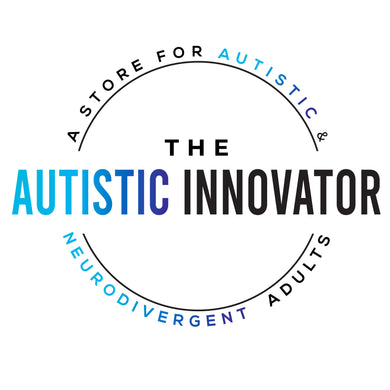Autistic Imposter Syndrome has hit us all at some point. Even if we are out and proud of being autistic, we can still question if we are autistic enough to relate to our community.
If you’ve asked yourself questions like, “Am I really autistic? Or is it just in my head?” You are not alone.
Maybe we deal with or are disabled by conditions other than autism that can overpower our autistic side and we feel less autistic because of it.
We could feel lost wondering if we really are a part of this autistic community we love and respect.
If you’ve had these thoughts, you are not alone.
Autistic Imposter Syndrome is extremely common.
Where does Autistic Imposter Syndrome come from?
Imposter syndrome can come from our deeply rooted autistic fear of not fitting in.
We get so used to feeling like we need to mask and pretend to be someone else that we question if we can ever fit in with anyone.
Faced with our social challenges when communicating with neurotypicals, we can internalize there must be something wrong with us.
This internalized idea we can’t communicate like neurotypicals say we should, can create imposter syndrome in autistic adults.
Since we think we can’t fit in with neurotypicals, we assume we don’t fit in with other autistic adults either. Leaving us feeling lost and confused.
Symptoms of Autistic Imposter Syndrome
There are many symptoms we can resonate with when we have Autistic Imposter Syndrome. Here are some symptoms:
-
Scrolling autistic Twitter spaces and autism Facebook groups, you may see posts you relate with so much, but ask yourself, “Do I really relate? Or is this just in my head?”
-
Feeling like we want to belong somewhere, but doubting we can ever fit in with any group.
-
Knowing autistic traits all resonate with you, and still wondering if you can be autistic without a professional diagnosis.
-
Feeling as if you have nothing to say related to autism because you feel you are not autistic enough.
-
Having physical, mental, or psychiatric disabilities you struggle with more than autism, so you feel you don’t have the right to be a part of the community.
-
Reading posts on social media from people who are disabled from autism and questioning if you can be autistic without being disabled by it.
-
Being told by neurotypicals you don’t look autistic, so you wonder if they are right and you’re not actually autistic.
Why we feel Autistic Imposter Syndrome
We may feel Autistic Imposter Syndrome because we may struggle with self-doubt.
If we have self-doubt, we might not trust our gut instinct when it says we resonate with most of, if not everything, the autistic adult community says about their life experiences.
We could also feel as if we’re not good enough to fit in with the autistic community that we admire.
Without a professional diagnosis, we might feel as if we can’t be autistic until a medical professional has confirmed it, but not everyone has the financial resources or healthcare resources to get one.
Our doubts and insecurities can lead us to not feel worthy enough to fit in with anyone, be a part of the autistic community, and accept our autistic selves.
This may be our biggest struggle - accepting ourselves as an autistic adult.
How to accept your Autism and Imposter Syndrome
The first step we can take towards undoing the imposter syndrome would be to accept ourselves for who we are.
Accepting ourselves for who we are also includes accepting the autistic traits we resonate with so much.
We may find our place in the world amongst other people who are just like us, experience life the same as we do, and have the same struggles so we don’t feel so alone anymore.
Autistic Imposter Syndrome can cause us to feel we aren’t autistic enough, worthy enough, or have the self-doubt that causes us to feel alone in the world.
We are not alone. You are not alone. Together, we autistic adults share this same journey of accepting ourselves and our place in this wonderful and beautiful community of autistic adults who are just like us.
How to encourage others to accept they are a part of our autistic community
As we all know, neurotypicals may not recognize that we are autistic, but it’s easy to spot the autism in each other.
Other autistics may see our hyperfixations, in-depth special interests, how much we have to stick to a routine, among many other traits, and we can confirm other autistics.
It’s a common joke that neurotypicals will tell us things like “You don’t look autistic,” and “You can’t be autistic because you communicate too well.” But other autistic adults will say, “Yes, I can confirm. You are so autistic!”
Encouraging other autistic adults to accept themselves could start with telling them positive things about their autistic traits, or maybe complimenting them on the very autistic things they do.
Communicating in our own autistic way
The most important one is to relate. As you know, we autistic adults like to share stories about ourselves when others tell us what they are going through, and not to make it about ourselves, but to relate.
Our very autistic way of communicating is to relate with each other so we don’t feel alone anymore.
Creating a very autistic way of communicating and embracing our own natural autistic social skills with each other can give us the freedom and sense of community we all need.
It’s also great for our mental health to have that social connection and communications with other autistic adults who have the same natural social rules as we do.
The best way to encourage other autistic adults to not feel Autistic Imposter Syndrome is to validate, encourage, and support each other in our own uniquely autistic way.


